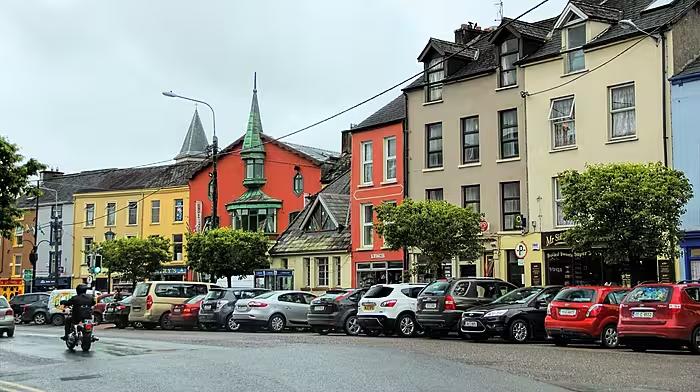Painful memories will be rekindled this weekend, as it marks the 10th anniversary of the blanket guarantee that the then Fianna Fáil-Green Party coalition government had to give to prevent the collapse of our banking system.
PAINFUL memories will be rekindled this weekend, as it marks the 10th anniversary of the blanket guarantee that the then Fianna Fáil-Green Party coalition government had to give to prevent the collapse of our banking system. Taoiseach Brian Cowen and Minister for Finance, the late Brian Lenihan, had – because of light touch regulation – very little information on which to base their decision on, only the desperate pleas of the begging bankers.
The debate still surfaces from time to time as to whether Anglo Irish Bank should have been included, but it was and the Irish taxpayer is still paying back the €64bn it was estimated the bank guarantee cost, coupled with the subsequent humiliating bail-out of the economy by the EU-IMF-ECB troika just over two years later, which added so much more to our national debt (now still standing at just under €200bn) and forced us to borrow since then to fund the day-to-day running of our country.
We are on the point of being able to pay for current expenditure out of tax revenues, having widened the tax base over the past decade – but perhaps still not enough, some economists would argue. However, despite all the hype and spin about how well the economy is doing, people are not a whole lot better off, as pay and conditions disimproved during the downturn and any improvements since have been devoured by the incessantly-rising cost of buying or renting property due to the shortage of housing units that was allowed develop.
This is an untenable situation that needs even more urgent addressing than it is currently being given by the government. While it is increasingly difficult for people to get on the property ladder now, at least those who do should be able to afford it, unlike all the people the banks recklessly lent money to during the Celtic Tiger era property boom and which led to the bursting of the property bubble and the costly bank guarantee.
When the property market collapsed 10 years ago, the revenue from Stamp Duty which was fuelling the Tiger economy dried up and led to the economic collapse. Have we learned anything from that about the folly of putting all our eggs in the one basket?
Judging by our worrying dependence of corporate tax revenue from foreign companies based here to put a gloss on our current economic success, it would seem prudent to look seriously at other tax-raising options, especially given the health and housing crises that need urgent attention. In spite of its detractors, the establishment of a rainy day fund is no harm, given the uncertainty that exists about the possible knock-on economic effects that Brexit could have.
We don’t need another era of austerity so soon again, especially as we are still paying off the cost of the last one.







